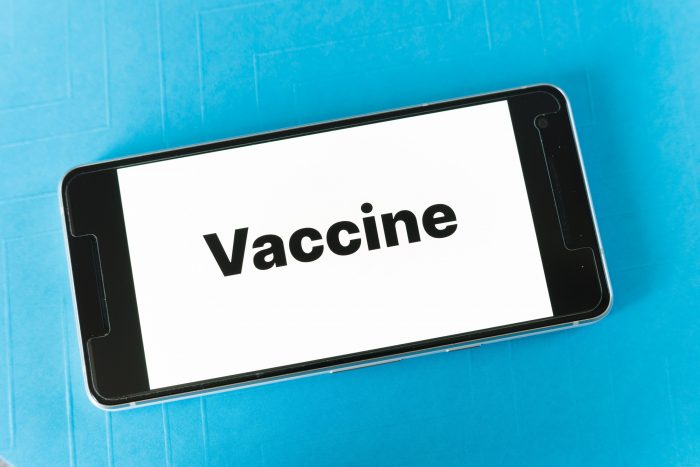DOH Launches Text Messaging Initiative To Get More Pennsylvanians Fully Vaccinated


A PA ABLE Savings Program account gives individuals with qualified disabilities (Eligible Individuals), and their families and friends a tax-free way to save for a wide range of disability-related expenses while maintaining government benefits. The state and federal tax-free investment options are offered to encourage Eligible Individuals and their families to save private funds to support health, independence, and quality of life.
To help you learn about the important features and benefits of PA ABLE, the Pennsylvania Treasury Department is hosting free webinars.
Some of the topics that will be discussed include eligibility requirements for opening a PA ABLE account, the federal and state tax benefits of PA ABLE, and how PA ABLE account interacts with current benefits.
Employers and HR professionals can participate in an overview webinar about the PA ABLE program, learning:
Offer PA ABLE Savings Program to Your Employees For FREE:
FEMA/CDC have emergency planning videos with ASL interpretation available for public use:
FEMA CDC Accessible: Flood Waters During and After a Disaster
FEMA Accessible: CDC Helping Adults Cope During an Emergency
FEMA Accessible: CDC Helping Children With Disabilities During an Emergency
FEMA Social Stories:
FEMA’s Flood Insurance Advocate Explains Flood Claims
FEMA’s Flood Insurance Advocate Explains When Flood Insurance is Required
A free webinar is being sponsored by the PA Department of Health Bureau of Emergency Preparedness and Response, PA Department of Human Services Division of Emergency Planning and Safety Operations, and the Office of Mental Health and Substance Abuse Services.
DATE: Monday, August 9, 2021
TIME: 10:00 am–11:30am
Register through TRAINPA
LOCATION: Zoom
For more information, see the flier.
The following information was released from the Office of Long-Term Living (OLTL) today regarding the American Rescue Plan Act (ARPA) funding distribution.
Federal funding from the American Rescue Plan Act (ARPA) was allocated by the General Assembly and enacted by the Governor to provide $282 million to nursing facilities (NF), personal care homes (PCH), and assisted living residences (ALR). These ARPA funds should be used for COVID-19 relief for costs not otherwise reimbursed by federal, state, or other sources of funding. To qualify for the one-time payment, the facility must be in operation as of June 1, 2021.
OLTL is still working on the details of all of these payments. Providers should be expecting to receive a letter with more details about the payments, including information about the approved use of and reporting on these funds, in August of 2021.
Additionally, as OLTL did with the CARES Act payments, payment information by facility for NF, PCH, and ALRs will be posted to the Department of Human Services’ (DHS) website.
Nursing Facility Payments
Out of the $282 million, $247 million is allocated for NF payments. $198 million will be allocated to NF based on Medical Assistance (MA) days of care for the third quarter of calendar year 2019 and $49 million will be allocated based on licensed beds for all nursing facilities as of March 31, 2020.
NF providers enrolled in the MA program do not need to submit requests for the funding. All currently enrolled NFs will receive the funding provided they meet the criteria in the act.
OLTL is preparing the distribution of the funds as one-time gross adjustment for NFs currently enrolled in MA. Providers should expect to see the payment appear as a gross adjustment transaction/lump sum payment on a PROMISe remittance advice with payment issuance occurring nine days after the transaction appears on their remittance. OLTL’s intention is to distribute the payments in early fall 2021.
NFs who are not currently enrolled with MA must complete a form providing information for OLTL to issue the payment and return it to DHS. The form is currently being developed and will be posted on the DHS’ website in August 2021. Reminder messages will be sent to facilities when the form is posted on the DHS website. Checks will start to be issued and mailed in fall 2021. It is a manual process to prepare an invoice to generate a payment to a provider; thus the checks will be issued as the forms are processed.
PCH/ALR Payments
Out of the $282 million, $30 million was provided for payments to PCHs and ALRs. $27 million will be allocated based on the occupancy of the facility on or before April 1, 2020, and $3 million will be allocated proportionally based on the number of Supplemental Security Income (SSI) residents in the facility as of March of 2020.
PCH and ALRs must complete a form providing information for OLTL to issue the payment and return it to the Department. The form is currently being developed and will be posted on the DHS’ website in August 2021. Reminder messages will be sent to facilities when the form is posted on the DHS’ website. Checks will be issued and mailed starting in fall 2021. Please understand it is a manual process to prepare an invoice to generate a payment to a provider; thus checks will take time to be issued to the almost 1200 PCH and ALRs.
If you have questions about the above information, please contact the OLTL Provider Helpline at 800-932-0939.

The Center of Excellence for Protected Health Information (COE PHI) and SAMHSA have created one-page resources to assist practitioners and consumers on guidance for telehealth visits and encounters. The tips provide an overview of best practices for appointments to assist in creating a safe environment for treatment.
COE PHI: Tips for Telehealth Privacy
SAMHSA: How to Prepare for a Video Appointment
Please feel free to share these resources with your staff and stakeholders. If you have any questions, please contact RCPA Policy Director Jim Sharp.
We’re learning more about COVID-19 all the time. The Centers for Disease Control and Prevention (CDC) looks at the latest available evidence to make the best science-based public health recommendations. Because of new information on the Delta variant currently circulating in the United States, CDC has updated the information for fully vaccinated people.
More About the Delta Variant
Viruses constantly change through mutation. Slightly different forms of a virus are called variants.
Delta is one such variant, and it’s caused more than 80% of recent COVID-19 cases in the United States – according to estimates – and will likely cause more. Delta spreads more easily than other variants. In fact, COVID-19 cases have increased over 300% nationally from June 19 to July 23, 2021, driven by Delta variant.
The best way to stop the spread of Delta is to get vaccinated against COVID-19. Vaccines are preventing severe illness, hospitalization, and death, and are effective against the Delta variant. High vaccination coverage will reduce spread of the virus in your community and elsewhere – and help prevent new variants from emerging.
What Has Been Updated?
CDC is constantly reviewing new data and evidence on the Delta variant. This update is based on recent evidence both here in the United States and in other countries. It shows a small number of fully vaccinated people may be infected with Delta and may infect others.
The highest spread of cases and severe outcomes is happening in places with low vaccination rates. Most vaccinated people are protected from the virus. However, the evidence shows that vaccinated people can get Delta in a breakthrough infection and may be contagious. Even so, breakthrough cases are being seen in a small number of vaccinated people and the vast majority are avoiding serious illness, hospitalization, or death. Virtually all hospitalizations and deaths continue to be in those who are not vaccinated.
The Delta variant is much more contagious than previous versions of the virus. Therefore, CDC now recommends the following for people who are fully vaccinated (more than 2 weeks from the last dose of the vaccine):
CDC recommends universal indoor masking for all teachers, staff, students, and visitors to K-12 schools, regardless of vaccination status. Children should return to full-time in-person learning in the fall with layered prevention strategies in place.
Learn more about these updates. At this time, recommendations for travel have not changed.
How to Protect Yourself and Your Community
Getting vaccinated is the most important thing you can do to end the COVID-19 pandemic. But some people may still need to take steps to protect themselves against COVID-19, such as children too young to get vaccinated or people with weakened immune systems.
In addition to wearing masks indoors in public, consider the following:
Find a Vaccine Near You. With the Delta variant, getting vaccinated is more urgent than ever. Please send this information to your colleagues, networks, friends, and family.
Additional Resources
Contact Us
Email: EPIC@cdc.gov
Centers for Disease Control and Prevention
1600 Clifton Rd
Atlanta, GA 30333
Questions?
Contact CDC-INFO
800-CDC-INFO (800-232-4636) TTY: 888-232-6348